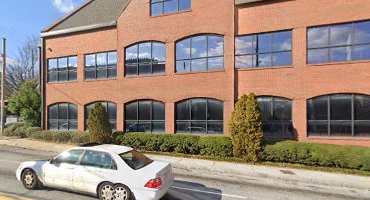Principal Investigator(s): Meltem Alemdar
The Robert Noyce Scholarship Program, administered through the National Science Foundation (NSF), was developed in an effort to address the need for more Science, Technology, Engineering, and Mathematics professionals to pursue teaching careers in K-12 schools.
The I-IMPACT Noyce Program is a collaboration between Kennesaw State University (KSU) and the Georgia Institute of Technology (Georgia Tech) aimed at addressing a shortage of quality physics and chemistry teachers in metro-Atlanta. It is designed to contribute to a rise in teacher retention rates in the metro-Atlanta area. The main goal of the I-IMPACT program is to recruit 16 new secondary physics and chemistry teachers (NSF Teaching Fellows, henceforth referred to as “TFs”) and an additional 16 master teachers (NSF Master Teaching Fellows, henceforth referred to as “MTFs”) in these disciplines. These teachers are provided scholarships that allow them to receive the necessary preparation and licensure for successful teaching careers.
Methodology: The evaluation of the I-IMPACT Noyce program utilizes two evaluation components – an ongoing formative evaluation and a longitudinal evaluation component. The formative evaluation, which is ongoing throughout the project, monitors and documents the program implementation and activities and provides feedback to the administrators and KSU faculty as lessons learned in order to guide program changes. It also provides a historical account of the planning and implementation stages and can be shared with other institutions choosing to adopt a similar approach. The longitudinal evaluation component provides a) detailed formative guidance to the program implementation, educational components, and structure of the program, and b) summative evidence of program education and research outcomes and impacts. This component includes both quantitative and qualitative methods, including participation rates, teacher surveys, focus groups, interview, and analysis of a web-based collaboration site. The following evaluation questions guide this project evaluation:
- To what extent were the recruitment strategies effective?
- What is the effectiveness of master teacher fellows as teacher leaders?
- What is the impact of professional development activities on master teacher fellows (MTFs)?
- What is the impact of induction support on teacher fellows (TFs)?
- To what extent has the program been successful to retain teacher leaders?
Selected Findings:
Program Participants
During the 2011-2012 program year, there were six MTFs and six TFs enrolled in the program. As of March 2013, ten additional MTFs have been admitted to the program.
The majority of currently enrolled TFs hold a bachelor’s degree (80%). 40% of TFs hold a degree in chemistry or biological sciences, and one TF indicated that he/she holds a degree in physics. All TFs were employed full-time prior to receiving funding from the Noyce Scholarship Program. The following are the occupation categories in which TFs were employed:
- Health Occupations
- Physical Scientists
- Computer Occupations
- Counselor—Educational or Vocational
- Management Consulting
Teaching Motivation:
The majority of respondents indicated that factors other than those listed in this survey influenced them to pursue a science-teaching career (mean = 3.5). TFs indicated that having some previous opportunities to teach (mean = 3.2) and the financial assistance provided to them by the Noyce Scholarship Program (mean = 3.25) were important in their decision to become a science teacher. On average, respondents indicated that not liking their previous occupation was somewhat important in their decision to become a teacher (mean = 2.8). While three of five respondents stated that the questions were not applicable to them, the remaining two respondents suggested that the encouragement of college counselors and/or academic advisors to become a teacher was not at all important in their decision (mean = 1.0). Four out of five respondents stated that they decided to become a teacher before hearing about the Noyce Scholarship program and that they would have become a teacher regardless of their acceptance into the Noyce Scholarship program.


